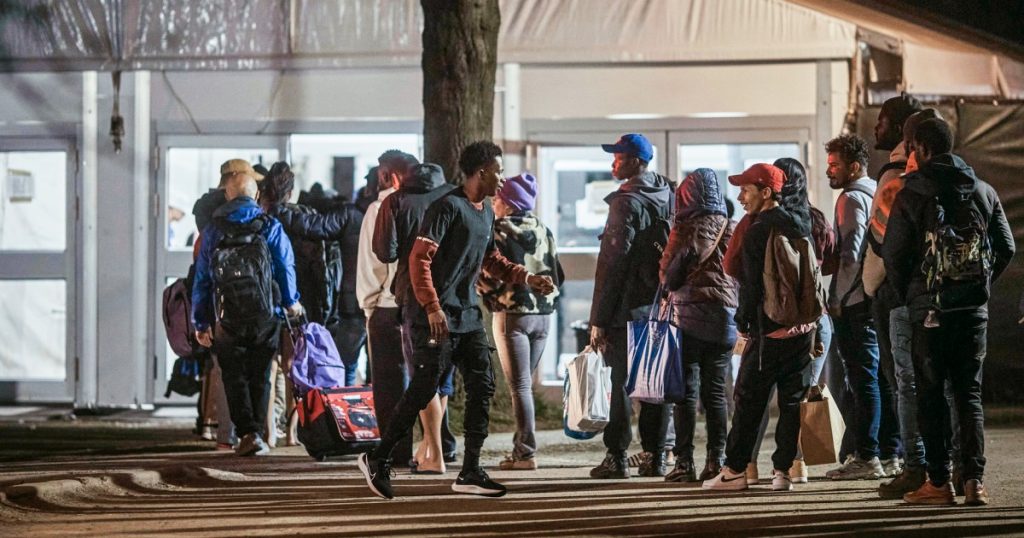New York City has implemented a new policy to evict some migrants from shelters within 30 days, or 60 days for younger adults, in an effort to manage the strain on its shelter system due to the arrival of nearly 200,000 migrants since 2022. Advocates have criticized the policy as inhumane and unrealistic, fearing that people will end up homeless. The policy is the result of a settlement in March between the city and advocacy groups regarding the city’s “right to shelter,” which requires the city to provide shelter to anyone who arrives there, regardless of immigration status. Migrant families with children are exempt from the new limits.
Single adults and adult families without children will now have to leave the shelter system in 30 days under the new policy, while young adults ages 18 to 23 will have 60 days, unless they meet certain exceptions such as proof of access to alternative housing options, immigration hearings scheduled, or significant efforts to resettle. Advocates have expressed concerns about how the city will interpret the exceptions, particularly the requirement of demonstrating “significant efforts to resettle,” and fear that some migrants may be forced to move despite genuinely trying to resettle. The city has stated that those whose notices expire and do not demonstrate extenuating circumstances will not be able to reapply for shelter.
The Adams administration sought a way to limit the right to shelter given the recent massive influx of migrants, especially after Texas Gov. Greg Abbott began busing them to Democratic cities in 2022. The new policy is part of the city’s efforts to manage and care for the increased number of migrants, who have overwhelmed the shelter system. Designated teams are reviewing information provided by migrants nearing the end of their notices and assisting them with exit planning to help them take the next steps in their journeys. The city aims to reduce the strain on the shelter system and continue providing essential services to all New Yorkers.
Advocates for migrants and the homeless are closely monitoring the implementation of the new policy to ensure that it is applied fairly and that no one ends up on the streets. Concerns have been raised about the city’s interpretation of the exceptions to the policy and whether migrants will be forced to move despite making genuine efforts to resettle. The city has stated that it does not want to see people on the streets and will provide reasonable accommodations to those who demonstrate extenuating circumstances. The mayor’s office has emphasized that adult migrants entering the shelter system will receive initial placements, their 30- or 60-day notices, and a resource guide about qualifying for extensions.
About 250 migrants are facing eviction this week if they cannot meet the city’s requirements for extensions. The new policy has been met with criticism for being inhumane and unrealistic, with fears that people will end up homeless as a result. The city’s decision to implement this policy is in response to the significant strain on the shelter system due to the arrival of thousands of new migrants requesting shelter every day. The policy is part of the city’s efforts to manage the influx of migrants and provide essential services to all New Yorkers. The city has stated that it will assist migrants in the transition out of the shelter system and hopes to reduce the strain on the system through these measures.














